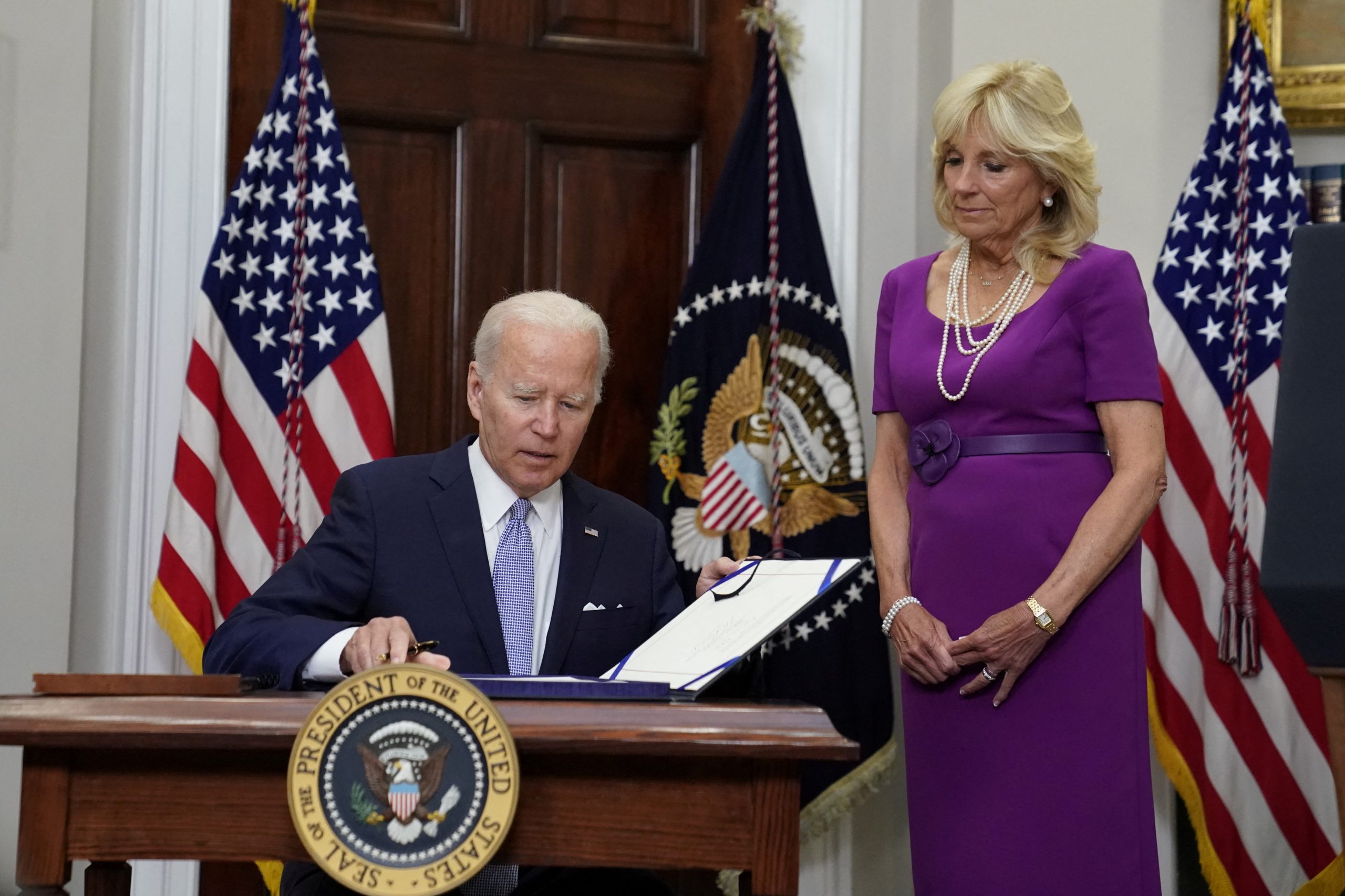
Chris Lange, FISM News
[elfsight_social_share_buttons id=”1″]
President Biden said Monday that he is determined to place a new ban on assault weapons as he welcomed guests to the White House to celebrate passage of the bipartisan Safer Communities Act.
“We’re living in a country awash in weapons of war,” Biden told an audience that included family members of mass shooting victims.
“What is the rationale for these weapons outside war zones?” he asked.
Later, as he formally signed the measure into law, Biden called for a reinstatement of a 1994 ban on assault weapons.
“They were banned. I led the fight in 1994. And then under pressure from the [National Rifle Association] and the gun manufacturers and others, that ban was lifted in 2004,” Biden said.
Multiple mass shootings in recent months have once again brought gun reform to the forefront of political debate, culminating in the passage of the gun reform legislation that requires adults under the age of 21 to undergo enhanced background checks before purchasing guns and allows local authorities to confiscate weapons from lawful gun owners deemed to be a threat, also known as red flag laws.
Many Democrats, however, have said the legislation does not go far enough and have called on the president to reinstitute a ban on firearms classified by the federal government as assault weapons. One proponent of increased gun regulation was escorted from the press conference yesterday, after heckling the president during his speech.
Manuel Oliver, whose son Joaquin was killed in the 2018 Parkland shooting, yelled, “You have to do more than this!” while Biden was in the midst of his remarks.
Biden responded by saying, “Sit down. You’ll hear what I have to say.” Oliver received applause from those in attendance when he said he had been trying to talk to Biden for years of ways to enact more change. Biden eventually relented saying, “Let him talk, let him talk,” before going back to touting the “progress” he has made to “save lives.”
"We have to do more than that!"
— Parkland father Manuel Oliver interrupts President Biden celebrating the passing of the bipartisan gun safety bill pic.twitter.com/wCCzdPTcmP
— The Recount (@therecount) July 11, 2022
Despite calls from the left for more bans, research, including a government-funded study, suggests that such a ban will likely have little-to-no effect on rising gun violence in the U.S.
The federal government’s own study on the effects of the previous two-decade ban yielded “mixed” results, in terms of reducing gun violence.
Researchers commissioned by the Justice Department pointed out that, while the ban reduced the number of crimes committed with assault weapons, that decline was offset by crimes involving other types of firearms.
The researchers further noted that during the period in which the ban was in effect, gun violence had declined in the U.S. and in other countries around the world; however, they also found that it continued to fall even after the ban was lifted.
The study’s authors concluded that they “cannot clearly credit the ban with any of the nation’s recent drop in gun violence.” They added that, had the ban continued, incidents of gun violence were likely “to be small at best and perhaps too small for reliable measurement.”
Public policy research group RAND updated its review of gun control studies in 2020 and also determined that there was “inconclusive evidence for the effect of assault weapon bans on mass shootings.”
“We don’t think there are great studies available yet to state the effectiveness of assault weapons bans,” Andrew Morral, a RAND senior behavioral scientist who led the project, told FactCheck.org last year.
“That’s not to say they aren’t effective. The research we reviewed doesn’t provide compelling evidence one way or the other,” Morral continued.
A Pew Research Center study released this February found that 59% of gun-related deaths in 2020 were committed with handguns. Just 3% percent involved rifles, which includes firearms classified as “assault weapons,” and shotguns were involved in 1% of gun-involved homicides. Guns classified as “type not stated” accounted for the other 36%, according to the report which was based on an analysis of FBI data.
Reinstating the 1994 ban would require 10 Republican senators to vote with Democrats on its passage in order to overcome the 60-vote threshold. To date, no Republican senator has publicly expressed approval for its reinstatement.
